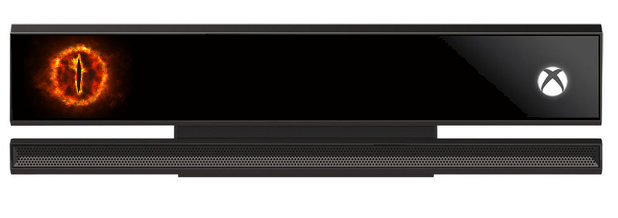I'm starting to think the next gen might be "ungood."

Microsoft seems to have a real knack for bad timing. While gamers everywhere are trying their best to reserve judgment about the upcoming Xbox One until E3 is underway, seemingly unrelated revelations come tumbling out of Washington that the NSA is performing extensive data mining on US citizens and many of their activities. As it turns out, all of this snooping requires the full cooperation of companies we rely on to maintain a modern, connected lifestyle. The first company put on the well-behaved corporate list of the observation program known as PRISM is none other than Microsoft – the same company who wants to place a set top box in your home with a required microphone and camera.
Right around the time that details of what the NSA has been up to in its mission to catch terrorists (a.k.a. “bad guys” per Senator Diane Feinstein), Microsoft also sent out a series of announcements to help allay fears about several of the Xbox One’s features. Among these was a reassurance about the online necessities of the machine as well as the plans for the microphone and camera that must be plugged in and powered on in order for the device to even function.
Microsoft assures us that privacy is of the utmost and that only data we choose to be shared will be shared and listening and viewing functions will only be active based on our preferences. That’s all well and good except there will most assuredly be a EULA (End User License Agreement) attached to the Xbox One and part of that will be that Microsoft will comply with all law enforcement entities and applicable laws. It’s what every company that doesn’t want to get shut down would do, so you can’t blame them for obeying the law. It’s also worth mentioning that this EULA will definitely allow for future changes to the EULA itself, which most people will agree to with a mindless click of an on-screen “OK” button. This puts everyone considering purchasing this new console in a bit of a bind.


We might have lost our expectation of privacy in the public square and when logged in to public online locations like message boards and social networks. None of that visibility has extended into our actual homes before, and this is where things get sticky. Security experts and government officials assure us that the data the NSA is culling through is top-level, looking for extended patterns of engagement in questionable activities that point towards individuals making terroristic plots. Most likely, this is accurate. The biggest off-putting bit about this program is the process of making connections between people with some degree of separation between them and an actual suspect. Paranoid or not, many are worried that unknowingly visiting a restaurant owned by an anti-government wacko might pull them into some sort of legal mess (at best).
Let’s assume that due diligence is taking place throughout all levels of this massive government organization and there will always be a human element standing between a piece of software culling through your Yelp reviews and the launching of a drone to blow up your house. In time, though, this human element can become the actual problem. You don’t have to look far down the newspaper front page to see how large organizations filled with fallible humans can make some poor and downright illegal decisions to inhibit the rights of citizens. The IRS’s latest SNAFU shows that whether direction comes from on high or is the work of a low-level worker bee, there is always potential to abuse government systems and stomp on others’ rights.

Certainly Microsoft would never allow anyone within its campus to access data that was tagged as private. There’s sure to be extensive oversight over any sort of snooping or data collection that would break the agreed upon terms of service. Unless, of course, Microsoft is actually a giant company spread around the world that would be impossible to thoroughly control.
All it would take is a single employee with the right access and the wrong motivations (or the right lack of social acumen) to add a few lines of code to record audio and video coming out of any home. Perhaps the motivations might even be in the name of “improved focused advertising,” where Microsoft decides to start listening for a selection of key words to decide whether to provide you with a either an ad for Doritos or Quaker Rice Cakes the next time you boot up your Xbox One. No harm done, right? You’re just getting ads for products you care more about. But the next move might be to use the camera for the same reasons – simply to be able to send out an ad for an upcoming DeadMau5 concert if the camera spies a white dude in salmon shorts sitting on the couch.
Whether done under a Microsoft CEO-blessed program of enhanced advertisements or due to a rogue employee’s misguided curiosity, that camera and microphone could easily end up recording you and your family regardless of what you’re doing. In steps the NSA probing for some data on a “bad guy” that you played Modern Warfare 5 with and random still shots of your family might be viewed somewhere in Washington (to clear your name, of course).
Is this a problem? If you’re doing nothing wrong, the judicially reviewed process would certainly determine your innocence and move on, and perhaps agents would only ever see meta data about your conversations and pajamas. The problem is, we don’t know. We could end up with a huge international corporation collaborating with a massive government entity to decide whose living room is truly private or not and how to manage that information. Once the process gets started in a system like this, changing its course later if the highly praised “oversight” procedures actually uncover an issue won’t be an easy task. Perhaps the issues will be publicly revealed after several terrorist plots are squashed so we’ll be convinced it was a worthy trade-off.

There’s no way to tell, and it all depends where we try to grab our footing on this slippery slope. In some ways, that Minority Report computing future we all hoped for might become more real than we thought possible. Yeah, we’ll have (possibly wonky) arm flailing to satisfy our greatest dreams, but will we also have a system of constant surveillance that stops pre-crime based on a statistical analysis of our phone use and TV back talk? I doubt it, but it certainly seems possible that a photo of me or my kids in the sanctity of my living room could cross someone’s computer screen in Redmond or D.C., and I’m not so sure I want to pay for this privilege.









Comments